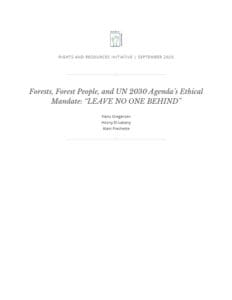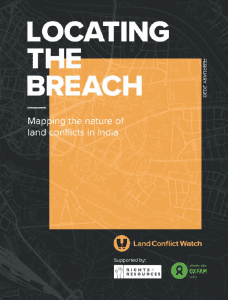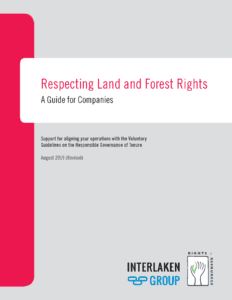The contributions of the forest, trees outside forests, and agroforestry sector (FTA) are crucial for achieving the United Nation’s (UN) 2030 Agenda for Sustainable Development…
This report presents an innovative, international comparative assessment on the extent to which various national-level legal frameworks recognize the freshwater tenure rights of Indigenous Peoples, Afro-descendants, and local communities, as well as the specific rights of women to use and govern community waters.
In India, conflicts over land can have deep and far-reaching implications for the well-being, development, and identities of communities. A land conflict can be defined as any instance in which two or more parties contest the use of, access to, or control over land and its associated resources. Land conflicts permeate rural and urban areas across all Indian states. Resolving land conflicts in India's developing economy is essential to reducing inequality and the inequities that an isolated focus on growth can exacerbate. Land Conflict Watch (LCW) has investigated the reasons for, and the impact of, land conflicts across the country over the last three years.
The Interlaken Group developed this Guide to support companies aiming to align their operations with the Voluntary Guidelines on the Responsible Governance of Tenure of Land, Fisheries and Forests in the Context of National Food Security.
This report identifies factors that have contributed to the success of local, national, and regional initiatives employed in low- and middle-income countries to strengthen indigenous and rural women’s governance rights concerning community lands.
If properly leveraged, natural climate solutions can contribute over 37% of cost-effective CO2 mitigation by 2030. Evidence shows Indigenous Peoples and local communities are key to achieving such outcomes. This report presents the most comprehensive assessment to date of carbon storage in documented community lands worldwide.






